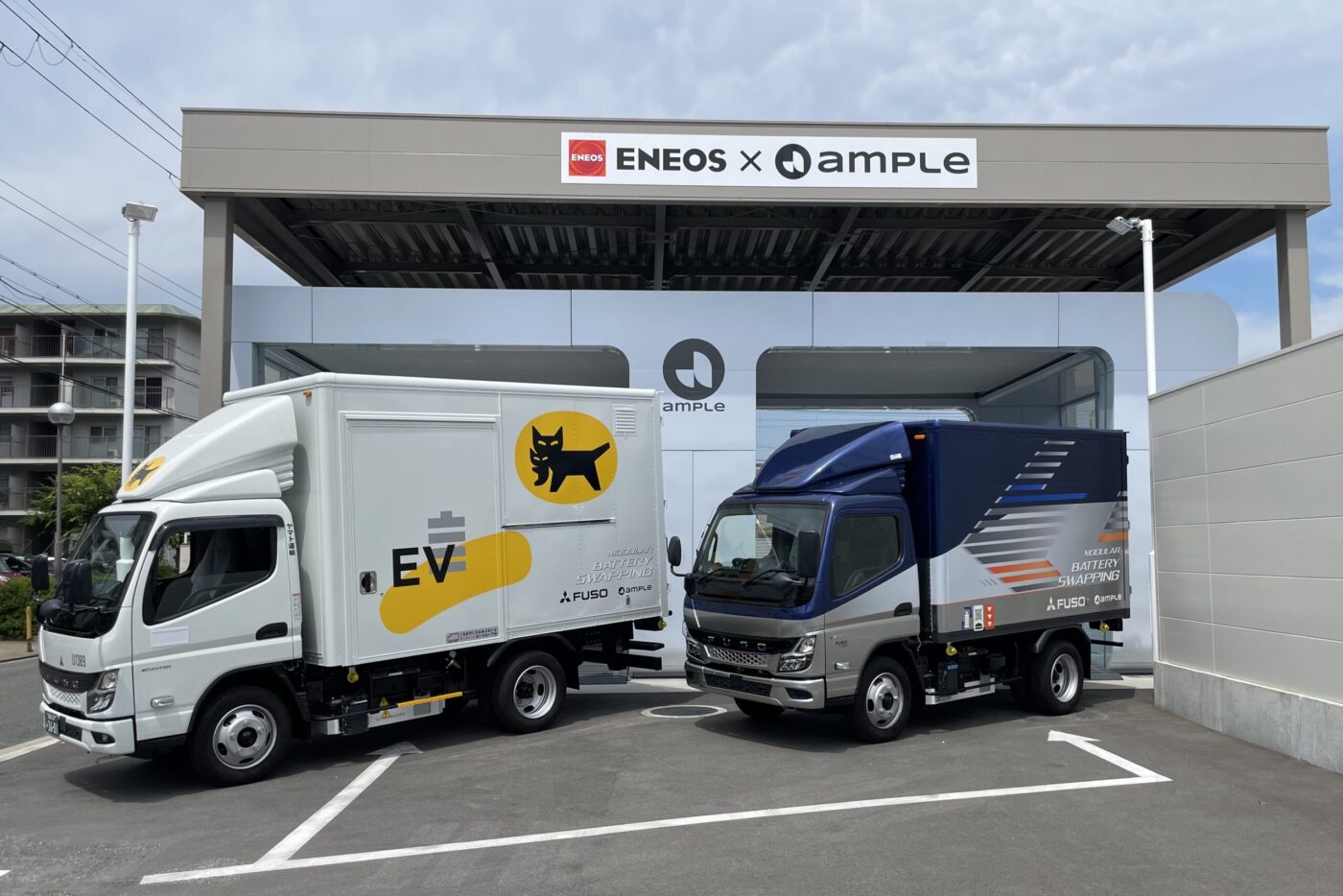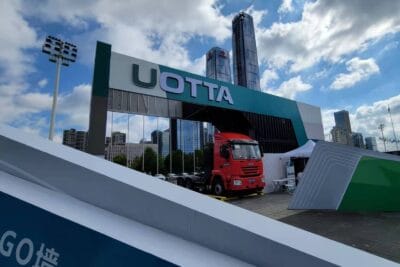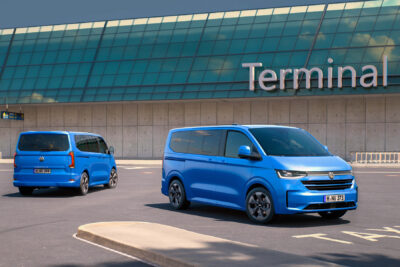Battery swapping for commercial vehicles expands in Japan
The deployment of 150 electric commercial vehicles and battery swapping infrastructure involves Mitsubishi Fuso electric eCanter light-duty trucks and Mitsubishi Motors’ Minicab EV, which is a kei-car-class (very small vehicle) commercial electric vehicle with monobox design, as pictured above.
This project follows another pilot program from 2024 in Kyoto that was announced in 2023. This initial project trialled a single eCanter light-duty truck with exchangeable battery modules and battery swapping stations from US manufacturer Ample, operated by the courier service Yamato Transport on public roads for collection and delivery journeys. Yamato Transport, which Mitsubishi Fuso describes as “Japan’s largest shipping and logistics group,” began its efforts to commercialise battery swapping for fleets even earlier, in 2022.
The Kyoto demonstration, the partners say, validated the system’s operational benefits, as well as the ability of Ample’s platform to operate simultaneously across different vehicle types and brands. In addition to increasing the operational scale, this next phase of piloting now also includes Mitsubishi Motors as well as Mitsubishi Fuso Truck and Bus Corporation.
Mitsubishi Fuso Truck and Bus Corporation (MFTBS) was formed in May 2023 when Japanese commercial vehicle manufacturers Mitsubishi Fuso Truck & Bus and Hino Motors merged for commercial vehicle development, procurement and production with a view to electrification. Daimler Truck and Toyota, which own the above-mentioned brands, have made equal investments in the Fuso and Hino listed holding company. In Europe in 2024, Mitsubishi Fuso captured a 9% share of the very diverse European light commercial vehicle market.
In March just passed, Ample announced it was setting up battery swapping stations in Tokyo in collaboration with Mitsubishi Fuso Truck and Bus Corporation and Mitsubishi Motors Corporation. At the time, Khaled Hassounah, CEO of Ample, explained, “Tokyo is one of the world’s most advanced cities in sustainable urban development and one of the largest markets for commercial deliveries, making it the perfect place for our next deployments as we expand our presence in Japan.” He sees the company’s efforts in Tokyo as setting an example with a scalable solution for commercial fleets, showing how densely populated cities can electrify.
The benefits of battery swapping for commercial vehicles are many-sided. The obvious advantage for the transport provider is that it minimises downtime for vehicles in operation since they can swap batteries in 5 minutes without even having to exit the vehicle. Battery swapping also makes it easier for operators to ensure the batteries stay in good health, so that batteries can be easily evaluated and taken out of automotive service and into either second-life applications, or directly to recycling, without relying on the efforts of vehicle operators.
For local grids, battery swapping stations offer important advantages. Battery swapping stations can charge the batteries at low speeds when grid demand is low, whereas megawatt charging presents sucks a large amount of grid power very quickly in the moment the driver needs it. Battery swapping stations are also ideal grid balancers. In addition to charging the batteries when demand is low and/or when renewable energy production is high, for example, they can also feed energy back into the grid when demand is high. The statement released by the partners reveals, “Future deployments of swapping stations may also provide grid services,” without going into further detail.
Now, a fleet of 150 Fuso eCanter electric vehicles and Mitsubishi Kei-car trucks will make use of 14 Ample battery swapping stations with the stated goal “to demonstrate how battery swapping stations can support the real-world demands of commercial EV operators and to establish a backbone for commercial battery swapping in Japan’s largest city.”
The project partners emphasise in their statement that the project remains open to additional automotive companies, fleets and logistics operators, even providing a contact email for interested parties.





0 Comments